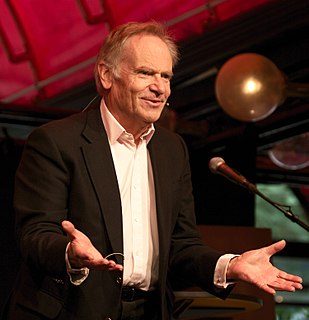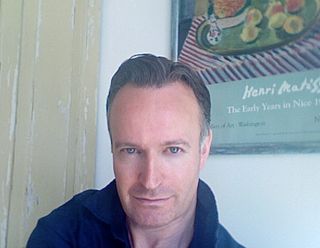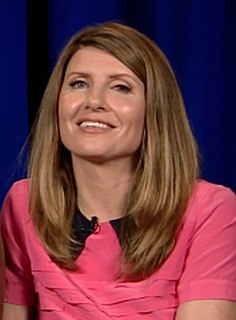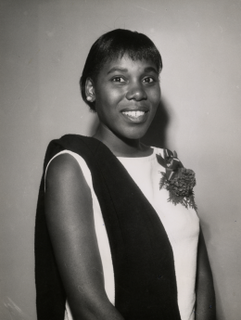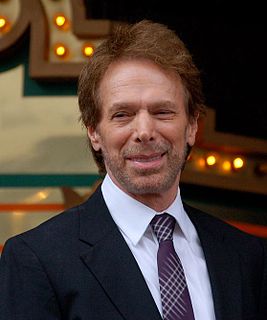Top 1200 Novel Writing Quotes & Sayings - Page 17
Explore popular Novel Writing quotes.
Last updated on December 19, 2024.
My cure for writer's block is to step away from the thing I'm stuck on, usually a novel, and write something totally different. Besides fiction, I write poetry, screenplays, essays and journalism. It's usually not the writing itself that I'm stuck on, but thing I'm trying to write. So I often have four or five things going at once.
Maybe I would have become an actor. I was a very outgoing kid, but being in the hospital - being outside of social action for so long - turned me into an observer. Actually, right after I got out of the hospital, I did start writing a novel, but the book was so transparently about me that I stopped.
You can get anything online, including things that don't even exist. We've invented our own collective unconscious. The normal rules of time and space don't apply. It's held together by some other force than gravity. It's endless. It's like some unimaginably huge, messy novel that's writing itself both with and without us.
I read Herman Hesse's 'Siddhartha' while I was writing 'Lord of Light' along with many other things. It seemed a good time to read it so I could see what he had to say about Buddha. In my first chapter, I was thinking in terms of the big battle scene in the 'Mahabarata.' It helped me in visualizing the battle in my novel.
I read a blog about this young filmmaker in the Philippines who made a short film, and one of the characters in the film reads my novel and then starts discussing the novel with someone. The idea that my book can inspire another artist and be part of that other artist's work... that's the reason I write.
I've always been fascinated by the concept of reincarnation. I learned that many brilliant people were interested in reincarnation, including Carl Jung. I'm a big Jungian. So I began writing novels involving theories integrating past and present, even if the past element in the novel took place 500 or 1,000 years ago.
Authors of so-called 'literary' fiction insist that action, like plot, is vulgar and unworthy of a true artist. Don't pay any attention to misguided advice of that sort. If you do, you will very likely starve trying to live on your writing income. Besides, the only writers who survive the ages are those who understand the need for action in a novel.
At the beginning of the project, I wasn't certain that I could come up with an engaging storyline and cast of characters in this world, so I had a strong bias toward actually writing, and worrying about research later. In other words, I was afraid that I'd devote a year or two of my life to grinding through Kant and Husserl, then discover that there simply was no novel to be written here.
I was in Los Angeles making 'Dead Again' and the producer, Lindsay Doran , asked me if I'd be interested in adapting this book, .. Austen is my favorite author and I thought, 'Well, of course, I'd be very interested, but I don't know how. I don't know where to start, A, writing a screenplay and B, sort of adapting it from a great novel.
I haven’t had trouble with writer’s block. I think it’s because my process involves writing very badly. My first drafts are filled with lurching, clichéd writing, outright flailing around. Writing that doesn’t have a good voice or any voice. But then there will be good moments. It seems writer’s block is often a dislike of writing badly and waiting for writing better to happen.
It seems to me that one of the things that happened with a lot of literary fiction in the 1980s and 1990s was that it became very concerned with the academy and less with how people live their lives. We got to a point where the crime novel stepped into the breach. It was also a time when the crime novel stopped being so metropolitan.
People didn't know certain things about me, which... I was out of creative writing class in school, Syracuse University; had a B.A. in English and wanted to write the great American novel but I also loved rock and roll. I was in bar bands all through college, playing fraternities and have to know all the songs in the top 10. That kind of thing.
Actually, I've taught creative writing in Turkey, at an English language university, where the students were native Turkish speakers, but they were writing their essays in English, and they were very interesting - even the sense of structure, the conventions of writing, the different styles of writing.
The age of the book is not over. No way... But maybe the age of some books is over. People say to me sometimes 'Steve, are you ever going to write a straight novel, a serious novel' and by that they mean a novel about college professors who are having impotence problems or something like that. And I have to say those things just don't interest me. Why? I don't know. But it took me about twenty years to get over that question, and not be kind of ashamed about what I do, of the books I write.
I realise that it is fashionable now to dismiss the traditional novel as something of an anachronism, but to me it is still a vital form. Not only does it allow for the kind of full-blown, richly detailed writing that I love . . . but it permits me to operate on many levels and to explore both the inner state of my characters as well as the worlds beyond them.
We're always on the search for a novel or a source or an existing screenplay, or writing something ourselves that turns us on. But because films cost a lot of money to make and a huge amount of effort to get the people to rally, you have to really like it; you can't just semi-like it. Getting to 'really like' is the part that takes the minute.
When I wrote my first book, 'The Tennis Party', my overriding concern was that I didn't write the autobiographical first novel. I was so, so determined not to write about a 24-year-old journalist. It was going to have male characters, and middle-aged people, so I could say, 'Look, I'm not just writing about my life, I'm a real author.'
Writing a novel - unlike operating a piece of heavy machinery, say, or cooking a chicken - is not a skill that can be taught. There is no standard way of doing it, just as there is no means of telling, while you're doing it, whether you're doing it well or badly. And merely because you've done it well once doesn't mean you can do it well again.
Sophie [Kinsella]'s writing just captivated me. We bought this eight years ago, before it became an international success and was only one book. Now there's five. So, we were very fortunate to latch onto a character who has since become an international success both as a novel and hopefully now as a movie.
I don't know that any writing comes easily, but I certainly get more immersed in novels. I don't think the routine is any different, but fiction tends to pull me further away from my life. When I'm deep in a novel, I don't pay bills and I walk around in one shoe, drinking two-day old coffee, and calling my kids by the wrong names.
The action of the child inventing a new game with his playmates; Einstein formulating a theory of relativity; the housewife devising a new sauce for the meat, a young author writing his first novel; all of these are in terms of definition, Creative, and there is no attempt to set them in some order of more or less Creative.
When I write, I feel that I'm writing with my intellect. When I paint, I think it's some other force making me paint. I - as I wrote in my novel 'My Name is Red' - watch with amazement what my hand is doing on the paper, what kind of line, what kind of strange, beautiful thing it's doing in spite of my will, so to speak.
Writing fiction is very different to writing non-fiction. I love writing novels, but on history books, like my biographies of Stalin or Catherine the Great or Jerusalem, I spend endless hours doing vast amounts of research. But it ends up being based on the same principle as all writing about people: and that is curiosity!
One of the things that's good for me is that I can go from one art form to another. Because I think if I had to write another novel now I would really not be good in my head anymore. It's too much. The frustration is so intense of knowing that this structure is right around the corner. Writing is a particular kind of frustration.
I was obsessed with fairytales, and I was a very, very inquisitive kid, and I would ask my mom all kinds of questions. It all kind of formed a story in my head, and I really wanted to be a published author when I was 10, but I had a hard time writing a novel when I was 10. So I decided to wait until I was little bit older and then get it done.











